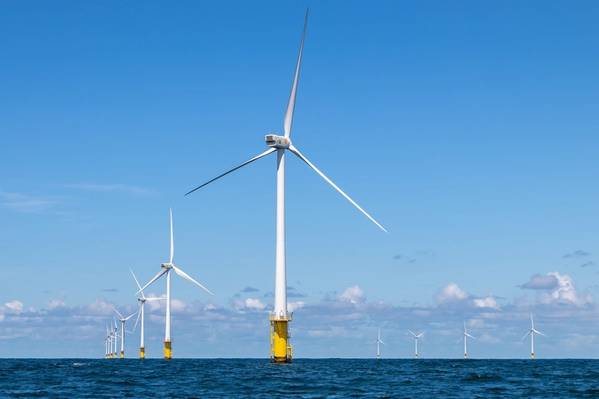
The United States' Bureau of Ocean Energy Management (BOEM) on Tuesday issued a final environmental assessment (EA) on potential impacts from offshore wind leasing on the U.S. Outer Continental Shelf in the Gulf of Mexico, marking another step toward the potential first-ever offshore wind lease sale in the Gulf.
The assessment, completed with the help of the Gulf of Mexico Intergovernmental Renewable Energy Task Force—a collaboration between Tribal, Federal, state, and local government agencies—found "no significant impacts to environmental resources", BOEM said.
“The completion of our environmental review is an important step forward to advance clean energy development in a responsible manner while promoting economic vitality and well-paying jobs in the Gulf of Mexico region,” said BOEM Director Liz Klein. “We will continue to work closely with our task force members, ocean users, and others to ensure that any development in the region is done responsibly and in a way that avoids, reduces, or mitigates potential impacts to ocean users and the marine environment.
Already a major energy hub for the offshore oil and gas sector, the Gulf of Mexico is expected to be a key contributor as the U.S. expands its offshore wind industry to meet the Biden-Harris administration’s goal of permitting 30 gigawatts of offshore wind energy capacity by 2030.
On October 31, 2022, BOEM announced two Wind Energy Areas (WEAs) offshore Texas and Louisiana that total about 682,000 acres – a subset of the 30-million-acre Call Area announced in November 2021. The WEAs represent offshore areas that appear to be the most suitable for wind energy development. On February 22, 2023, BOEM announced its proposal for the first offshore wind lease sale in the Gulf of Mexico for areas within the WEAs.
BOEM prepared the EA on the entire 30-million-acre Call Area to allow greater flexibility for possible identification of additional WEAs and to provide NEPA coverage in the event that non-competitive and research leases were proposed in the Call Area. The EA considered potential environmental consequences of site characterization activities (i.e., biological, archeological, geological, and geophysical surveys and core samples) and site assessment activities (i.e., installation of meteorological buoys) associated with the possibility of issuing wind energy leases in the Gulf of Mexico.
If BOEM decides to proceed with the sale, the bureau will publish a Final Sale Notice at least 30 days ahead of the sale, which will announce the time and date of the lease sale and the companies qualified to participate in it.
For any proposed offshore wind projects, BOEM will develop Environmental Impact Statements (EIS) to analyze the specific environmental consequences of the projects before deciding whether to approve them. The EISs will be prepared in consultation with Tribes and appropriate government agencies and informed by input provided by key stakeholders, ocean users and the public.
"Today’s announcement is an important step towards the build-out of the U.S. offshore wind sector. The Gulf of Mexico has long been renowned for its position as a premier offshore energy hub, leading through low carbon barrels of oil, and this achievement underscores its history of innovation and leadership. New offshore wind lease sales—along with the resumption of a long-term oil and gas leasing program—offers a foundation for the continued success of the Gulf of Mexico’s remarkable and irreplaceable energy portfolio," said Erik Milito, president of the National Ocean Industries Association (NOIA), offshore energy industry trade group.